On Wall Anniversary, Germany Urges US To Reject 'Egoism'
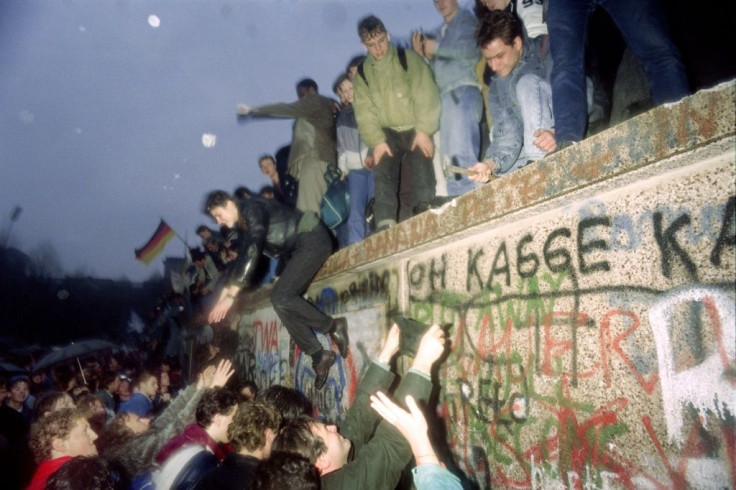
German President Frank-Walter Steinmeier urged the United States to be a "mutually respectful partner" and reject nationalism, in a clear salvo aimed at US leader Donald Trump as Germany on Saturday marked 30 years since the fall of the Berlin Wall.
Recalling the United States' key role in helping to bring down the hated Wall separating communist East Germany from the capitalist West, Steinmeier said he still hears the late American president Ronald Reagan's cry of "tear down this wall" at the iconic Brandenburg Gate.
But in a swipe at Trump's America First policy and his insistence on building a wall on the southern border with Mexico, Steinmeier voiced a yearning for a return of the transatlantic partner of the past.
"This America as a mutually respectful partner, as a partner for democracy and freedom, against national egoism -- that is what I hope for in the future too," said Steinmeier.
The German president's sharp words, as he opened festivities at the spot where Reagan once stood, underlined growing tensions between the traditional allies.
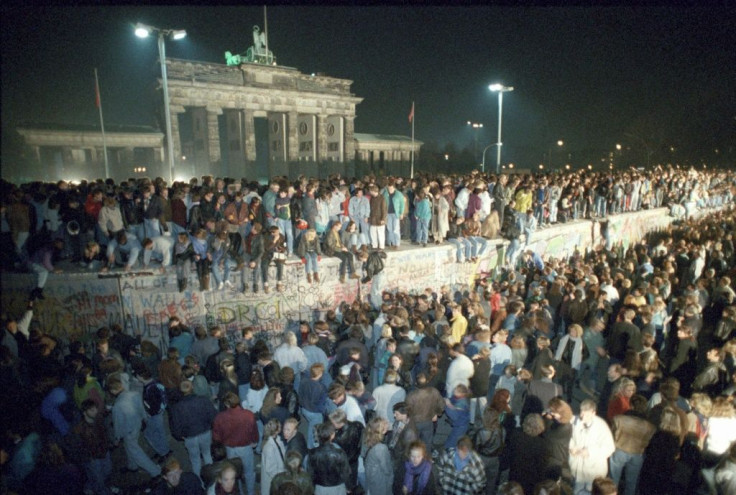
Germany has been deeply rattled by Trump's go-it-alone attitude on issues ranging from Iranian nuclear policy to trade with Europe and climate change.
From Washington, Trump sent a message of congratulations for the commemoration, adding that the US "will continue working with Germany, one of our most treasured allies, to ensure that the flames of freedom burn as a beacon of hope and opportunity for the entire world to see."
But unlike the optimism at previous commemorations of the epochal event on November 9, 1989 that brought the communist regime crashing down, three decades on, the mood has soured as the Western alliance that helped secure the liberal democracy is riddled with divisions.
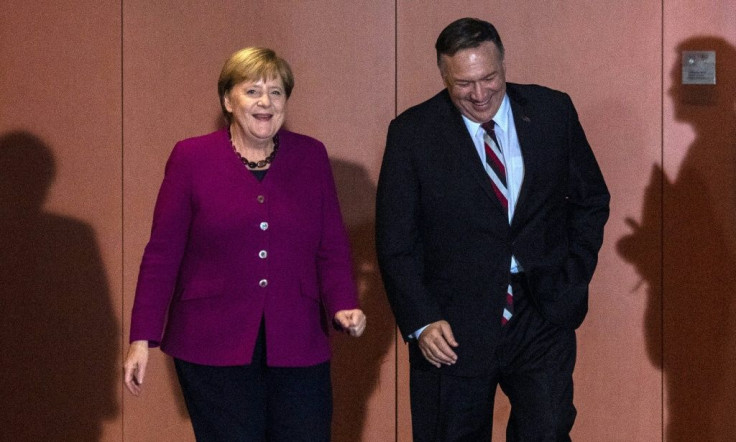
Within Germany too, a chasm has opened up with the far-right gaining a strong foothold in the former communist east on the back of its nationalist and anti-immigration message.
For Steinmeier, "a new wall has arisen that cuts through our country -- a wall of frustration, a wall of anger and hate".
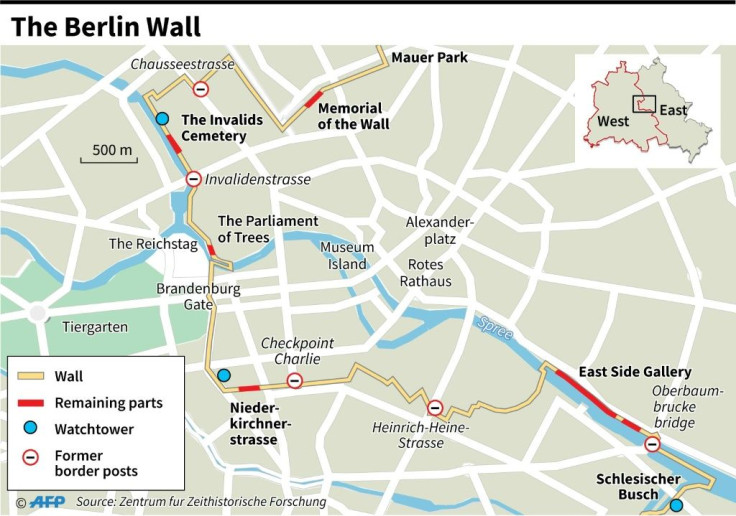
"Walls that are invisible but which divide. Walls that stand in the way of our cohesion," he warned, as he called on Germans to "tear down these walls, at long last."
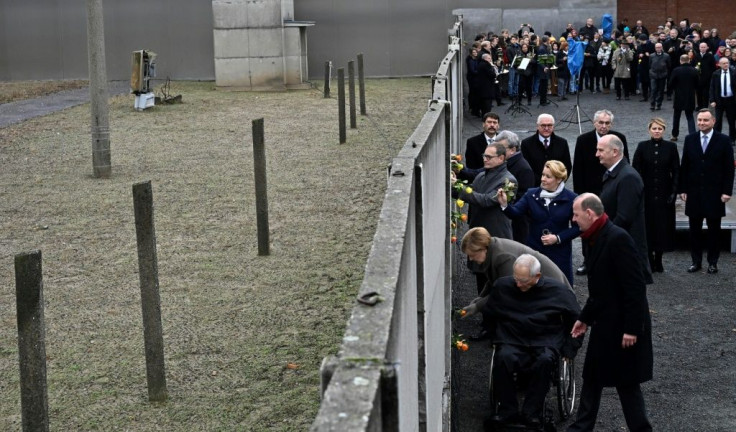
Under grey skies earlier Saturday, Steinmeier and presidents of central European countries placed roses in the cracks of a remaining section of the Wall still standing in the north of central Berlin.
At a solemn ceremony in a church standing on the former "death strip" that divided Berlin, Chancellor Angela Merkel, who grew up in East Germany, called on Europe to defend democracy and freedom, warning that such gains must not be taken for granted.
The Berlin Wall reminds "us that we have to do our part for freedom and democracy," said Merkel.
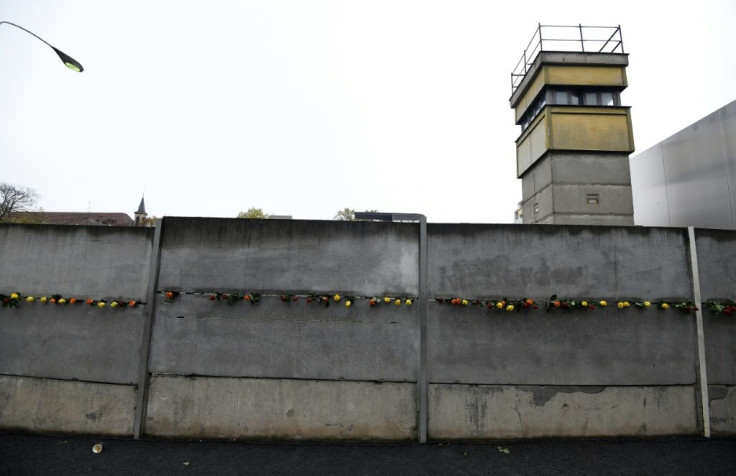
"The values upon which Europe is founded... they are anything but self-evident. And they must always be lived out and defended anew," she told guests from across the continent.
On November 9, 1989, East German border guards, overwhelmed by large crowds, threw open the gates to West Berlin, allowing free passage for the first time since the Berlin Wall was built.
The momentous event would end up bringing the communist regime crashing down, leading to German reunification a year later and heralding the collapse of the Soviet Union.
But the optimism for liberal democracy has waned in the last years.
Cracks have appeared within the European Union as former eastern bloc countries like Hungary or Poland are accused by Brussels of challenging the rule of law.
Differences are not only resurfacing between the former east or west blocs.
Two days before the anniversary of the epochal change, the leader of Germany's closest partner, France's Emmanuel Macron charged that transatlantic partnership NATO was suffering from "brain death".
Merkel responded with uncharacteristic sharpness, calling such "sweeping judgements" unnecessary.
The bad-tempered prelude to the festivities stood in sharp contrast to celebrations five years ago, when former Soviet leader Mikhail Gorbachev and ex-Polish president and freedom icon Lech Walesa were present.
This time, US Secretary of State Mike Pompeo's visit ended Friday, while Macron is only planning a flying visit on Sunday.
"Let us be just as courageous and live up to their expectations."
Pompeo meanwhile left behind a stark warning: "As we celebrate, we must also recognise that freedom is never guaranteed."
tgb-hmn/pvh
© Copyright AFP 2024. All rights reserved.





















